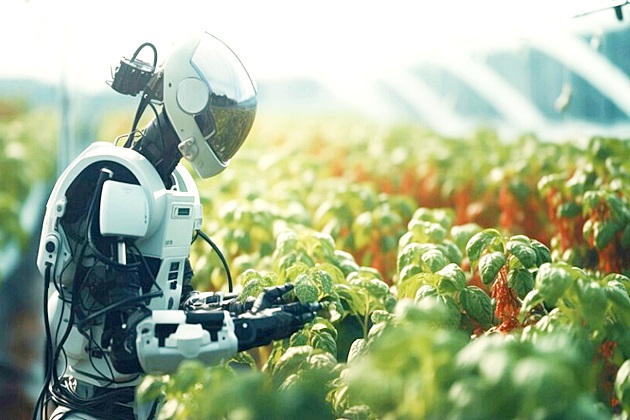1343

According to the latest forecasts issued by the survey company SartUs, new agricultural technologies are meeting the increasing demand for farm automation, digitalization, and sustainability.
Emerging agricultural trends indicate a shift towards smart agriculture and efficient use of time and resources while reducing crop losses.
Smart agriculture is a future trend that incorporates technologies such as the Internet of Things (IoT), computer vision, and artificial intelligence (AI) for farming.
Robots and drones are accelerating farm automation by replacing manual farm operations such as fruit picking, weed control, or water spraying.
Moreover, AgriTech startups are developing IoT devices powered by sensor technology to collect real-time field data. This allows farmers to make data-driven decisions. The widespread adoption of precision agriculture and indoor farming in recent years is fueling the growth of IoT in agriculture.
Collectively, these AgriTech trends are generating disruptive and sustainable changes in agricultural practices. The focus is not only on improving the overall quality and quantity of crops and better animal management but also on achieving the ultimate goal of a sustainable future.
Based on the AgriTech Innovation Map, the tree map below illustrates the impact of the top 10 agricultural trends in 2024. Startups and expansions are working on technological solutions to benefit farmers through the automation of farming operations and improved productivity.
The most widespread trend is the Internet of Things (IoT), which enables farmers to better monitor the needs of individual crops and animals. Automation in irrigation, farm machinery, and harvesting further eases farm operations while reducing losses.
Drones save time spent on crop research. Advances in artificial intelligence and machine learning (ML) also enhance prediction accuracy and provide insights into weather events, crop classification, and plant and animal diseases.
Precision agriculture is another major trend observed in the industry. Lastly, startups are developing sustainable agriculture solutions and advancing new growth techniques such as hydroponics and aquaponics.




